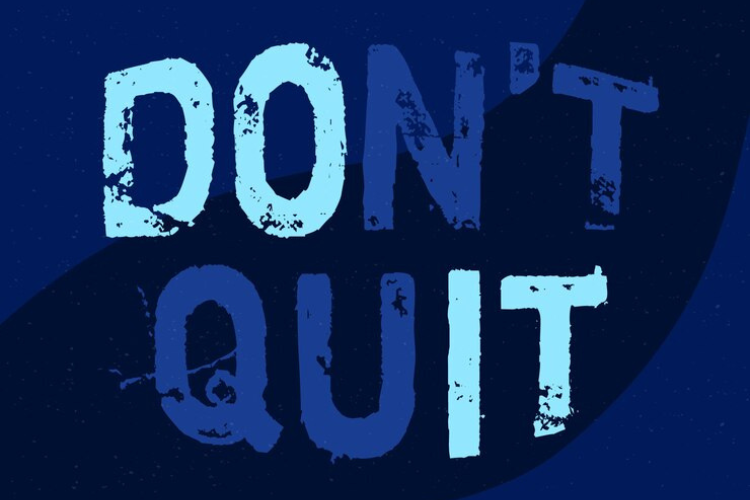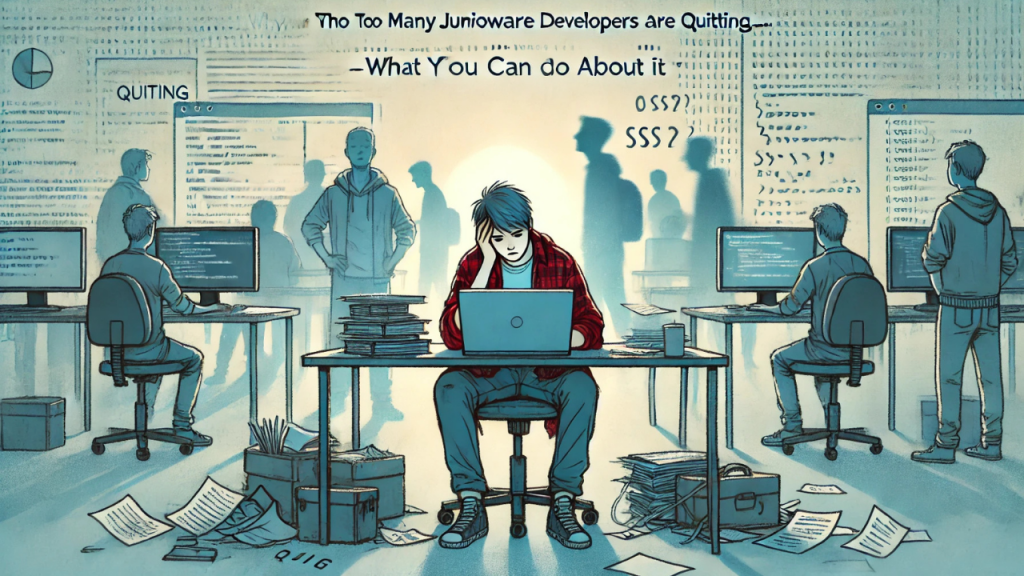The tech industry is booming, but many junior software developers are leaving the field before they even hit their stride. Why is that? At StartupHakk, we train developers and build custom software solutions. I’m Spencer Thomason, and after 25 years in software development, I’ve seen a lot of people quit before realizing their potential. So, why is this happening, and how can we fix it?
In this blog, we’ll explore the common challenges faced by junior developers and give you practical advice to stick with coding long enough to reap the rewards.
Challenges Faced by Junior Developers
The tech industry is tough, especially for newcomers. Junior developers are often greeted with rejection, long working hours, and a steep learning curve. Many give up, thinking they’re not cut out for the field. But here’s the truth—we’ve all been there.
The pressure to succeed can be overwhelming. You’re constantly learning new concepts, dealing with imposter syndrome, and wondering if you’ll ever get the hang of it. Many junior developers feel defeated after just a few months. But quitting too soon means missing out on future opportunities. Every great developer has been through these struggles.
Focus on what matters—improving your skills, not perfecting your code. Early on, it’s more important to write functional, clean code than to create something perfect.
Focusing on the Wrong Things
Many new developers get caught up in chasing the latest frameworks, algorithms, and tools. They think they need to be a coding rockstar right away. But this mindset is harmful. When you’re starting out, the goal should be to write code that works, not code that impresses everyone.
Don’t worry about elegance or perfection. What matters most is that your code is functional and you’re learning from it. Too many developers spend hours obsessing over minor details that don’t really matter at this stage. This can lead to frustration and burnout.
The truth is, you’ll have plenty of time to refine your skills later. Right now, focus on building a foundation. Don’t let the obsession with being perfect hold you back.
The Catch-22 of Job Market Experience
One of the biggest challenges for junior developers is breaking into the job market. It feels impossible to land a job without experience, but how do you get experience without a job?
Here’s the key: Get any coding job, even if it’s not your dream role. In your first two years, the goal is to build experience. The more you code, the better you’ll get. Once you’ve built up your resume, higher-level opportunities will come your way.
Keep in mind, there’s no shame in starting small. Every great developer has had a first job that wasn’t ideal. What’s important is gaining hands-on experience and applying what you’ve learned. Use these early jobs to grow, and in no time, better opportunities will open up.
The Mental Strain of Constant Learning
Technology is always evolving. As a developer, you’re expected to keep up with new languages, frameworks, and tools. It can feel like a constant uphill battle. The mental strain is real, and it’s a common reason many developers quit.
But here’s the secret: No one knows everything. Even experienced developers don’t know every new piece of technology that pops up. The key to success is staying curious and not letting the learning curve intimidate you.
Rather than trying to master every new tool, focus on learning how to solve problems. The ability to find answers when you need them is far more valuable than knowing every new framework out there.
The Trap of Comparison and Impostor Syndrome
Social media has made it easy to compare yourself to others, especially those who seem to be coding prodigies. It’s easy to feel like you’re falling behind when you see others posting about their latest AI projects or innovative apps.

But comparison will slow you down. Your journey is unique, and everyone progresses at their own pace. Instead of worrying about what others are doing, focus on your own growth.
Many developers also struggle with impostor syndrome—the feeling that they don’t belong in the industry or that everyone else knows more than them. Here’s the reality: impostor syndrome never really goes away, even for seasoned developers. The trick is to embrace it and keep pushing forward.
Feedback Is a Growth Tool
Another reason many junior developers quit is that they take feedback too personally. Code reviews can feel harsh, and it’s easy to get discouraged when someone tells you your code isn’t good enough.
But feedback is essential for growth. Rather than seeing it as an attack, look at it as an opportunity to improve. Everyone’s code gets critiqued, even the best developers out there. As you gain more experience, you’ll learn to appreciate feedback because it helps you level up.
Focus on Problem-Solving, Not Perfection
Too often, new developers focus on writing perfect code. But coding isn’t about perfection; it’s about solving problems. Sometimes the solution is messy, and that’s okay. If your code works, you can always go back and refactor it later.
In the early stages of your career, functionality should come first. Don’t waste time trying to write the cleanest, most optimized code in the world. Just make sure it works.
Career Progression Takes Time
Many junior developers feel stuck in entry-level roles and wonder how they’ll ever move up the ladder. But this is normal. Those first two years are about building your foundation.
It’s easy to look at senior developers and feel discouraged, but remember, they were once in your shoes. The more you code, the better you’ll get. After two years of real-world experience, your career opportunities will expand. Keep your head down, build your skills, and the promotions will follow.
Passion and Burnout
A lot of developers quit because they think they’re not passionate about coding every single day. But here’s the truth—you don’t need to love coding every day. There will be days when you’re frustrated, tired, or burnt out. That’s normal.
The key is to recognize that bad days are part of the journey. Everyone, even the most successful developers, goes through slumps. Don’t let temporary frustration convince you that you’re not cut out for coding.
The Reality of Software Development
Coding isn’t always glamorous. You won’t be building exciting apps every day. Sometimes you’ll be fixing bugs, writing documentation, or maintaining old code. But these tasks are important too.
The beauty of software development is in problem-solving. Each task, no matter how small, contributes to the bigger picture. As long as you’re learning and growing, you’re on the right path.
Don’t Quit Too Soon
Too many junior developers quit before they’ve had a chance to grow. If you’re feeling stuck, frustrated, or unsure about your career, know that these feelings are temporary. With time and experience, you will improve.

After two years in the real world, you’ll be amazed at how far you’ve come. Don’t quit before you give yourself the chance to succeed.
Final Thoughts
The tech industry is challenging, but the rewards are worth it. Stick with coding, focus on problem-solving, and don’t let setbacks discourage you. At StartupHakk, we’re here to help. Check out our videos, get free code samples, and join our coding bootcamps to take your skills to the next level.
Remember, your coding journey is unique—stay persistent, keep learning, and success will follow.




